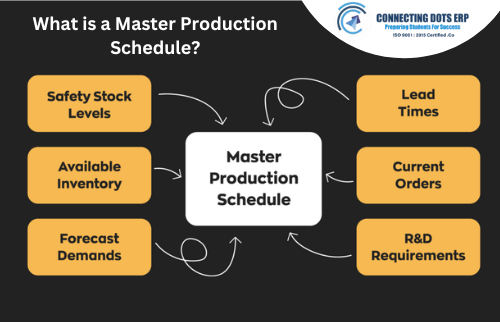How Do I Become a SAP SCM Consultant? Complete Roadmap of Your SCM Career

The world of logistics and supply chain management SCM thrums with the heartbeat of global commerce. As businesses strive for efficiency and agility, the demand for skilled SAP Supply Chain Management SAP SCM consultants is booming. If you’re fascinated by the intricate dance of supply chains and possess a strategic mind, a career as an SAP SCM consultant could be your perfect fit. pursue SAP SCM Course in Mumbai by completing courses offered by SAP or authorized training centres. This comprehensive guide equips you with a roadmap to navigate this exciting path, answering common questions like:
How do I become a SAP SCM consultant?
To become a SAP SCM Supply Chain Management consultant, start by obtaining a bachelor’s degree in a relevant field such as business, logistics, or information technology. Gain practical experience in supply chain management through internships or entry-level positions. Then, pursue SAP SCM Course in Mumbai by completing courses offered by SAP or authorized training centres, and pass the associated exams. Building expertise in SAP modules like MM Materials Management, PP Production Planning, and SD Sales and Distribution is crucial. Additionally, developing strong analytical, problem-solving, and communication skills will enhance your effectiveness as a consultant. Networking and gaining hands-on experience with SAP projects will further solidify your qualifications in this field.
Registration Link: https://connectingdotserp.in/
Call Now: 9004002958 / 9004001938
What is the cost of SAP SCM training?
SAP SCM course fees in Mumbai can vary, typically ranging from ₹20,000 to ₹3 lakhs depending on the institute, course duration, and chosen module
Is SCM a good career for women?
Absolutely! SCM is a gender-neutral field with excellent growth potential
Is SCM a good job?
Yes, SCM offers rewarding careers with excellent earning potential
Which SAP module is best for supply chain management?
SAP S/4HANA is the latest version, but specific modules like SAP MM and SAP TM may be relevant depending on your focus area
Is SCM a high-paying job?
Yes, SAP SCM consultants can command high salaries
What is the salary of an SAP SCM consultant in India?
Salaries vary based on experience and location, but typically range from ₹5 lakhs to ₹20 lakhs per annum for experienced professionals
What is the salary of a fresh SAP SCM professional in India?
Freshers can expect starting salaries around ₹3 lakhs to ₹5 lakhs per annum
Which is better, SAP SCM or SAP MM?
There’s no “better” option. SAP SCM is a broader umbrella, while SAP MM focuses on materials management within the supply chain
Is SAP SD and SAP SCM the same?
No, SAP SD focuses on Sales & Distribution, while SAP SCM encompasses the entire supply chain lifecycle
Registration Link: https://connectingdotserp.in/
Call Now: 9004002958 / 9004001938
What is SAP SCM used for?
SAP SCM streamlines planning, forecasting, inventory management, warehouse operations, and overall supply chain visibility
Which SAP module is the highest paying?
While all SAP skills are valuable, niche modules like SAP APO Advanced Planning and Optimization or SAP EWM Extended Warehouse Management can potentially command higher salaries
Which SAP module is best?
The “best” module depends on your career goals and interests. Explore options like SAP MM, SAP TM Transportation Management, SAP EWM, or SAP APO
The Journey to SAP SCM Consultant: Building Your Skills
Here’s a breakdown of the key steps to becoming a successful SAP SCM consultant:
1. Lay a Strong Foundation in SCM:
-
- Develop core SCM knowledge: Grasp basic supply chain principles like forecasting, inventory management, procurement, and logistics. Consider online courses, certifications offered by APICS American Production and Inventory Control Society, or relevant business degrees.
- Gain practical experience: Seek internships or entry-level positions in supply chain roles. This hands-on experience provides valuable insights into real-world operations.
2. Master the Art of SAP SCM:
-
- Choose the right SAP SCM module: Explore different modules like SAP MM Materials Management, SAP TM Transportation Management, SAP EWM Extended Warehouse Management, or SAP APO Advanced Planning and Optimization. Each module caters to specific supply chain functions. Consider your career goals and interests when making your choice.
-
- Explore SAP SCM courses in Mumbai: Mumbai, a bustling IT hub, offers numerous institutes providing SAP courses. Look for institutes with experienced faculty, a comprehensive SAP SCM course syllabus focusing on your chosen module, and ideally, SAP SCM certification preparation included. Explore options for online SAP SCM classes in Mumbai if flexibility is a priority.
- Invest in SAP certification: Earning an SAP SCM certification validates your expertise and strengthens your resume. Popular certifications include SAP Certified Application Associate – SAP S/4HANA Manufacturing or SAP Certified Application Associate – SAP MM.
3. Hone Your Consulting Skills:
-
- Develop strong communication and interpersonal skills: Effective communication is crucial for collaborating with clients, understanding their needs, and presenting solutions.
-
- Sharpen your problem-solving and analytical skills: Consultants identify inefficiencies and devise solutions. Hone your ability to analyse data, identify root causes of problems, and recommend practical improvements.
-
- Strengthen your project management skills: Consultants often manage projects from conception to
- Strengthen your project management skills: Consultants often manage projects from conception to completion. Develop skills in project planning, budgeting, resource allocation, and risk management.
Registration Link: https://connectingdotserp.com/
Call Now: 9004002958 / 9004001938
4. Build Your Network and Gain Experience:
-
- Connect with other SAP professionals: Network with experienced SAP SCM consultants through online communities, industry events, and professional organizations like ASCM – American Supply Chain Management Association. Gain insights, learn from their experiences, and explore potential job opportunities.
-
- Start your career journey: Apply for entry-level and become SAP SCM consultant positions or junior roles within SAP implementation teams. Gain practical experience implementing and customizing SAP SCM solutions for clients.
- Consider freelance consulting: As you build your experience, consider freelance SAP SCM consulting. This allows you to work on diverse projects and build your client portfolio.
Becoming an Indispensable SAP SCM Consultant:
The journey to becoming a successful SAP SCM consultant is a continuous process. Here are some additional tips for ongoing success:
-
- Embrace continuous learning: The SAP SCM landscape is constantly evolving. Stay updated with the latest functionalities by attending industry events, exploring online resources like the SAP Learning Hub, and pursuing additional certifications relevant to your expertise.
-
- Demonstrate your value: Volunteer for projects that allow you to showcase your SAP SCM skills and problem-solving abilities. Contribute to open-source projects or create case studies highlighting your successes to impress potential employers.
-
- Become a trusted advisor: Go beyond technical expertise. Develop a deep understanding of your clients’ businesses and industry challenges. Strive to become a trusted advisor who can offer strategic guidance alongside technical solutions.
- Embrace feedback: Actively seek feedback from colleagues and clients. Use this feedback to identify areas for improvement and continuously refine your consulting skills.
Registration Link: https://connectingdotserp.in/
Call Now: 9004002958 / 9004001938
Investing in Your Future with SAP SCM Training in Mumbai
Mumbai, with its thriving IT ecosystem, offers a plethora of institutes catering to aspiring SAP SCM consultants. By strategically choosing the right training program, focusing on a relevant SAP course syllabus, and actively building your skills, you can position yourself for a rewarding career in the ever-evolving world of SAP SCM. Take the first step towards your future today! Explore SAP Course In Mumbai and embark on your journey to becoming a sought-after SAP SCM consultant.



